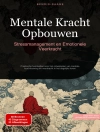We all long for peace within ourselves, families, communities, countries, and throughout the world. We wonder what we can do about the multitude of con?icts currently wreaking havoc across the globe and the continuous reports of violence in communities as well as within families. Most of the time, we contemplate solutions beyond our reach, and overlook a powerful tool that is at our disposal: forgiveness. As a genocide survivor, I know something about it. As the genocide unfolded in Rwanda in 1994, I was devastated by what I believed to be the inevitable deaths of my loved ones. The news that my parents and my seven siblings had indeed been killed was simply unbearable. Anger and bitterness became my daily companions. Likewise, I continued to wonder how the Hutus and Tutsis in Rwanda could possibly reconcile after one of the most horrendous genocides of the 20th century. It was not until I came to understand the notion of forgiveness that I was able to see the light at the end of the tunnel. Common wisdom suggests that forgiveness comes after a perpetrator makes a genuine apology. This wisdom informs us that in the aftermath of a wrongdoing, the offender must acknowledge the wrong he or she has done, express remorse, express an apology, commit to never repeating said harm, and make reparations to theextentpossible.Onlythencanthevictimforgiveandagreetoneverseekrevenge.
Tabella dei contenuti
Theoretical Perspectives.- Introduction: Issues and Themes in Forgiveness and Reconciliation.- A Systemic Framework for Forgiveness, Reconciliation, and Peace: Interconnecting Psychological and Social Processes.- Forgiveness and Relational Ethics: The Perspective of the Contextual Therapist.- The Psychology of Forgiveness in the World Religions.- The Bullet and Its Meaning: Forgiveness, Nonforgiveness, and Their Confrontation.- Individual and Interpersonal Levels.- Forgiveness and Reconciliation: Essential to Sustaining Human Development.- Art and Meaning: ARTiculation© as a Modality in Processing Forgiveness and Peace Consciousness.- Promoting Forgiveness Through Restorative Conferencing.- Guilt, Responsibility, and Forgiveness: Lessons from Lifers in Prison.- Intergroup, Societal, and International Levels.- A Black Social Psychologist’s Perspective on Racial Forgiveness.- Rwanda: Repentance and Forgiveness – Pillars of Genuine Reconciliation.- Darfur: Efforts to Forgive and Reconcile in an Unresolved Conflict.- India and Pakistan on the Brink: Considerations for Truth, Reconciliation, and Forgiveness.- Forgiveness in the Context of the Armenian Experience.- Forgiveness in Spite of Denial, Revisionism, and Injustice.- Reconciliation and Forgiveness in Divided Societies: A Path of Courage, Compassion, and Commitment.- Dialogue, Forgiveness, and Reconciliation.
Circa l’autore
Dr. Anie Kalayjian is a professor of psychology at Fordham University. She is also President of the Association for Disaster and Mass Trauma Studies and the Armenian American Society for Studies on Stress and Genocide. Dr. Kalayjian has been involved at the United Nations for the past fifteen years, where she works with several departments focusing on human rights, women, and mental health.
Dr. Raymond F. Paloutzian received his doctoral degree from Claremont Graduate School and has been a professor of experimental and social psychology at Westmont College, Santa Barbara since 1981. He has been a visiting professor teaching psychology of religion at Stanford University and Guest Professor at Katholieke Universiteit Leuven, Belgium. He is a Fellow of the American Psychological Association, the American Psychological Society, and the Western Psychological Association, and has served as President of APA Division 36 (Psychology & Religion). He is currently the editor of The International Journal for the Psychology of Religion.












